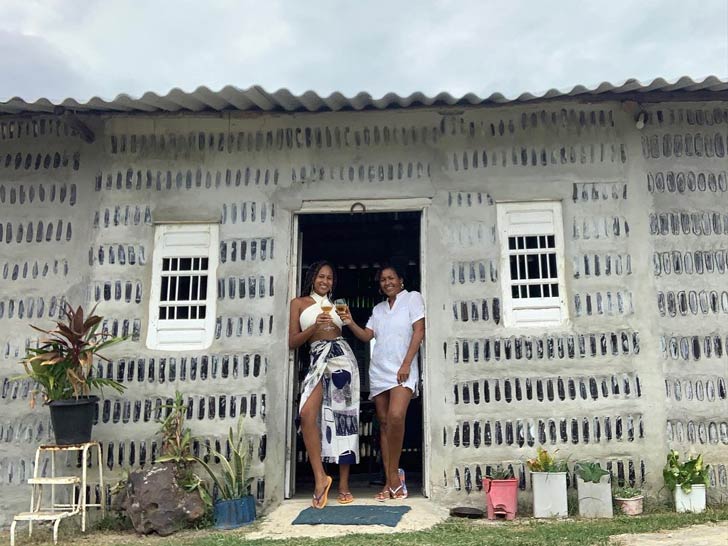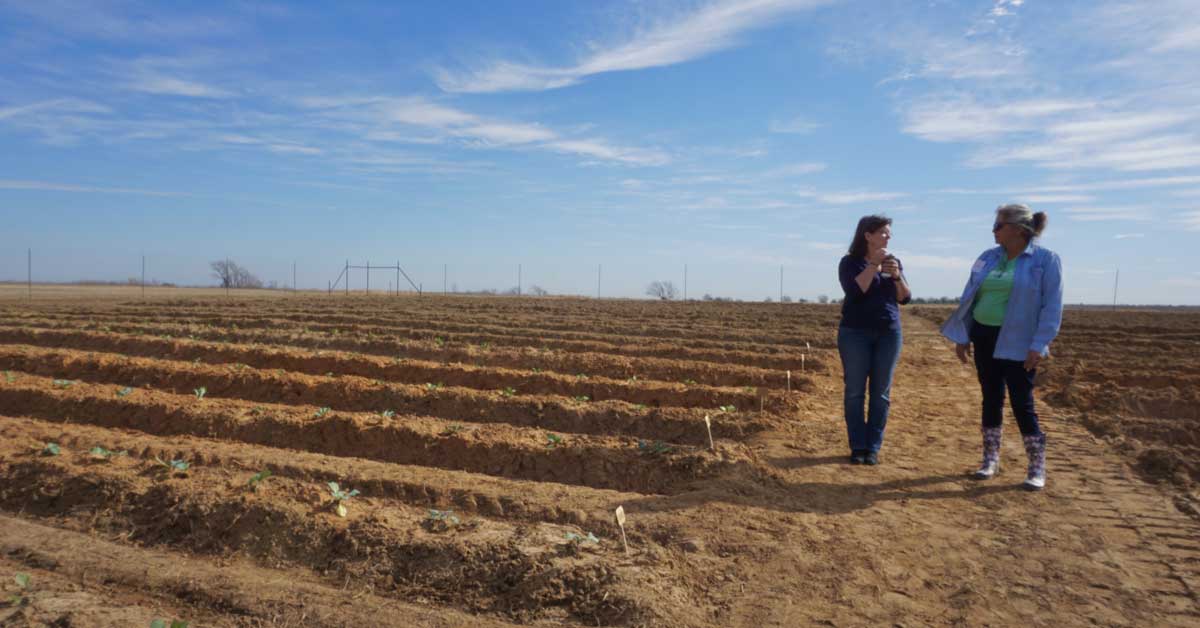As residents of Itamaracá, an island in the Brazilian state of Pernambuco, mother and daughter duo Edna and Maria Gabrielly Dantas saw the first-hand impacts of tourism on the coastal area.
Home to stunning beaches and biodiversity, Itamaracá hosts visitors from all over the world — who often leave waste in their wake.
But then the pair had a eureka moment: What if they took this trash and turned it into an economic opportunity?

During the COVID-19 pandemic, Edna and Maria started gathering glass bottles along the coast, along with recycled wood and other reusable objects found in their beach cleanups.
It took them two years to gather all of the materials, and then they began construction on Casa De Sal — The Salt House.
“These bottles aren’t going to disappear. Without policies to regulate their production or penalize abandonment, the least we can do is find ways to reuse them,” Edna told Black Enterprise. “If you throw a bottle away and it doesn’t break, it’ll still be there in a year.”

Since the start of the journey, the Dantas women have collected over 13,000 bottles, though an estimated 8,000 were what they used to build their home.
The house has seven rooms, with walls made of glass bottles cemented into place, partitions built from recycled wood palettes, and even roofing made with upcycled toothpaste tubes.

“The first year and a half was pure ingenuity: no conventional bathroom, washing dishes in a basin. But we never lost sight of our vision,” Maria told Diario AS.
Now, the Salt House is listed as a destination on Airbnb, and the duo hosts workshops to teach others in their community what they learned about this sustainable building method. They also now have an upcycled accessory brand, hand-sewing tote bags with other found materials.

Although successful and savvy, Edna and Maria have faced discrimination as two women in the building industry.
“People think that one day we found a magic bottle with a genie inside,” Maria told Black Enterprise. “They don’t realize this requires skill, management, vision. And being a woman in this environment is doubly hard.”
But ultimately, it all comes very naturally. Edna grew up in a family that reused materials out of necessity and passed her innate creativity on to her daughter.
“My childhood was marked by creativity,” she told Globo. “I made my own bamboo toys, recycled whatever I could. We didn’t know it was environmental activism, it was just how we survived.”
Indigenous to the Quilombola, an Afro-Brazilian people who are descendants of Africans who escaped slavery and started their own settlements in Brazil, the Dantas women see it as their responsibility to respect nature, with roots both in African and Indigenous cultures.
“Black women reviving themselves … we are the largest population, social, familial, and economic base in Brazil. Also, the largest neglected and exterminated base,” the Dantases shared in a social media caption, translated from Portuguese.

“When you deny the right to housing, food, health, education, care for the Earth and good living, you are also denying the right to life. And we have a social duty with our legacy to claim them all.”
In another social media post, Edna shared an alarming statistic that claims it can take up to seven generations — 184 years — for Black women in Brazil to buy a house of their own. Edna cites “environmental racism” as the catalyst for this project, one she hopes can provide repair and healing for everyone in her community.
She concludes: “We … [are] committed to being part of the practical actions within a time that demands more awareness, responsibility, harmony, and reconnection with nature.”
Header images courtesy of Casa de Sal/Instagram



